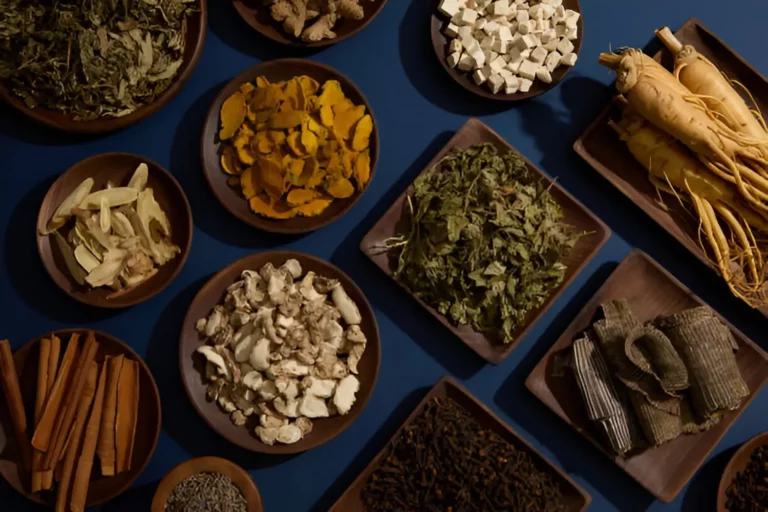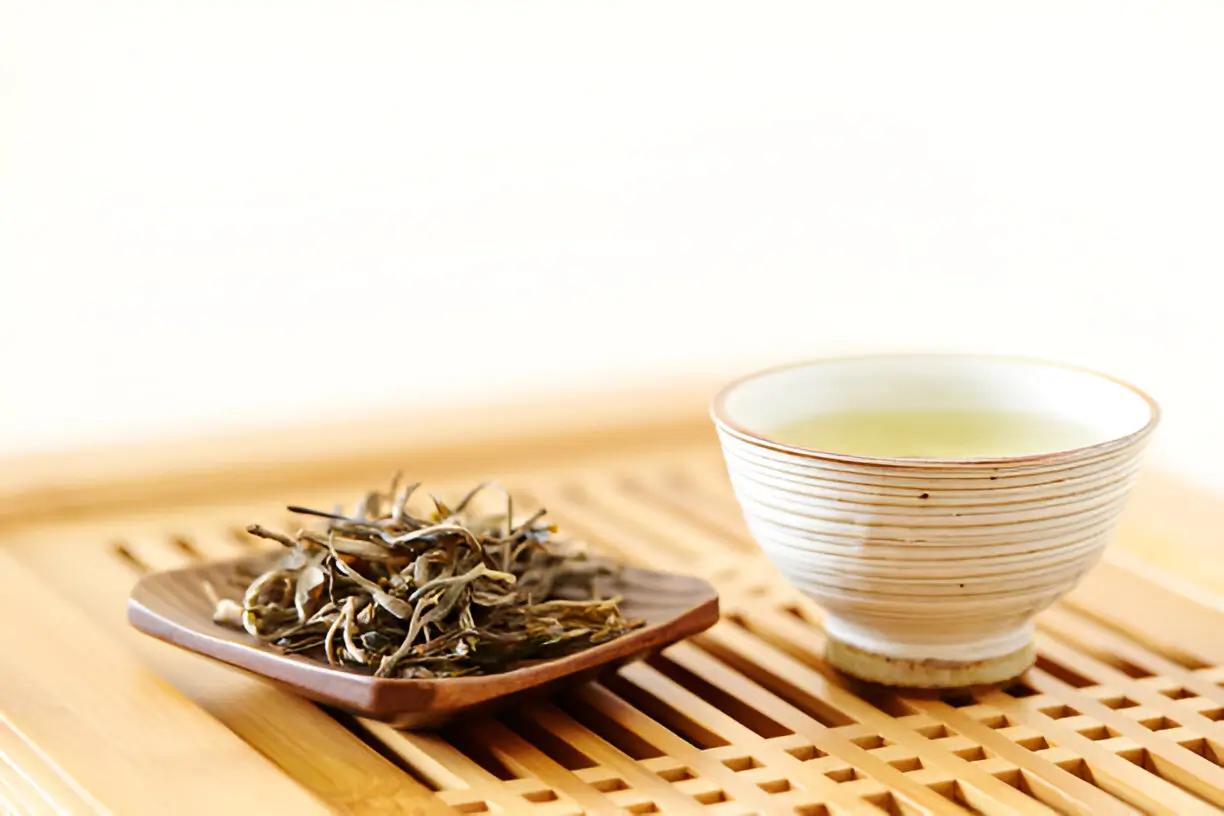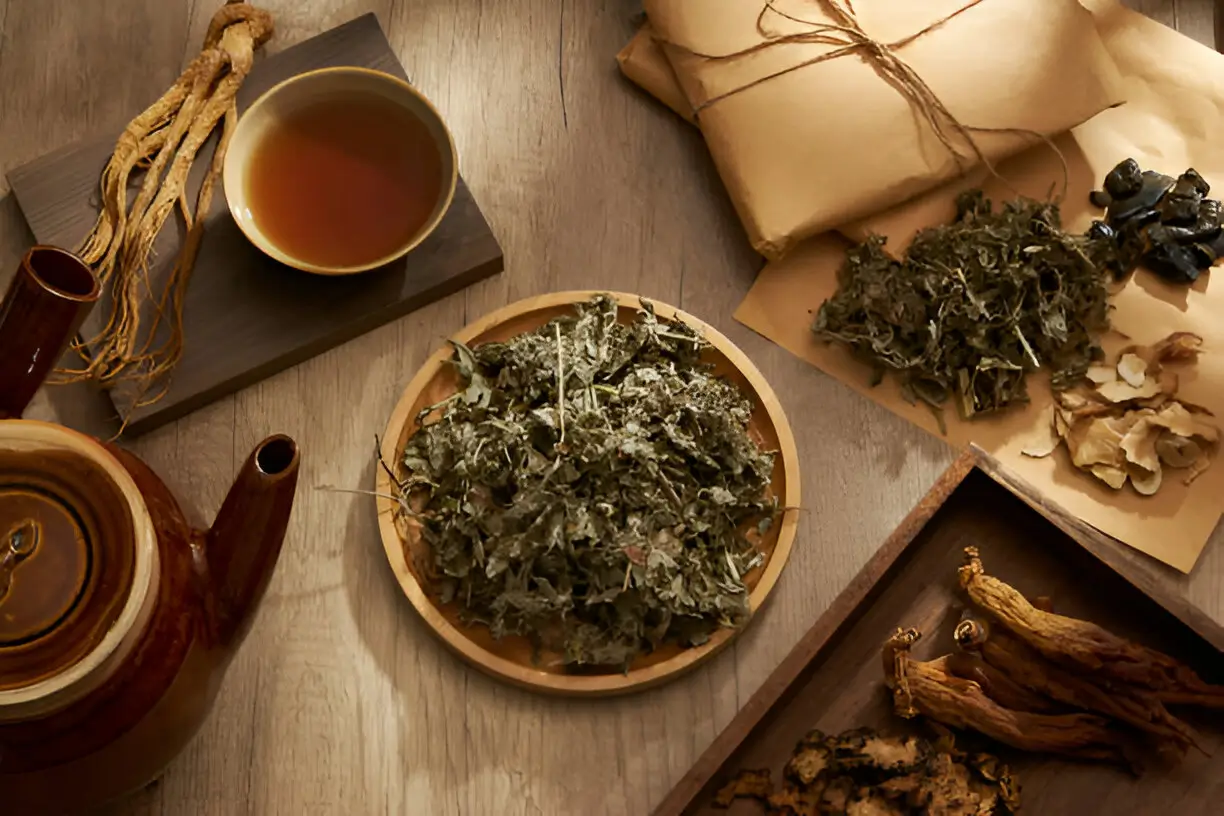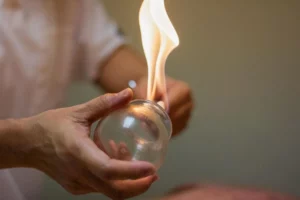How Effective Are Herbs for Fertility?
Herbs have been used for centuries in traditional Chinese medicine to support fertility. The effectiveness of these herbs can vary widely depending on the person, their health needs, and what role those herbs play in the fertility plan. For some, these natural remedies may give gentle support. They can improve blood circulation, balancing hormones, and reducing stress – all factors that can contribute to reproductive health.
Certain herbs are known for specific benefits:
- Dong Quai and Bai Shao (White Peony): regulate blood flow, potentially supporting a healthy menstrual cycle.
- Yi Mu Cao (Chinese Motherwort): often used to improve uterine health.
- Vitex (Man Jing Zi): balances hormones, particularly for irregular cycles or hormonal imbalances.
While many people report having positive experiences using herbs to support fertility, scientific research on the subject is still developing. The outcomes can vary from person to person. Herbs are not a substitute for medical treatments and may be most effective when used alongside other holistic approaches, like acupuncture, diet adjustments, and lifestyle changes. Consulting with a professional can be key to safely and effectively using these herbs because they can guide you in choosing the right combination and dosage.
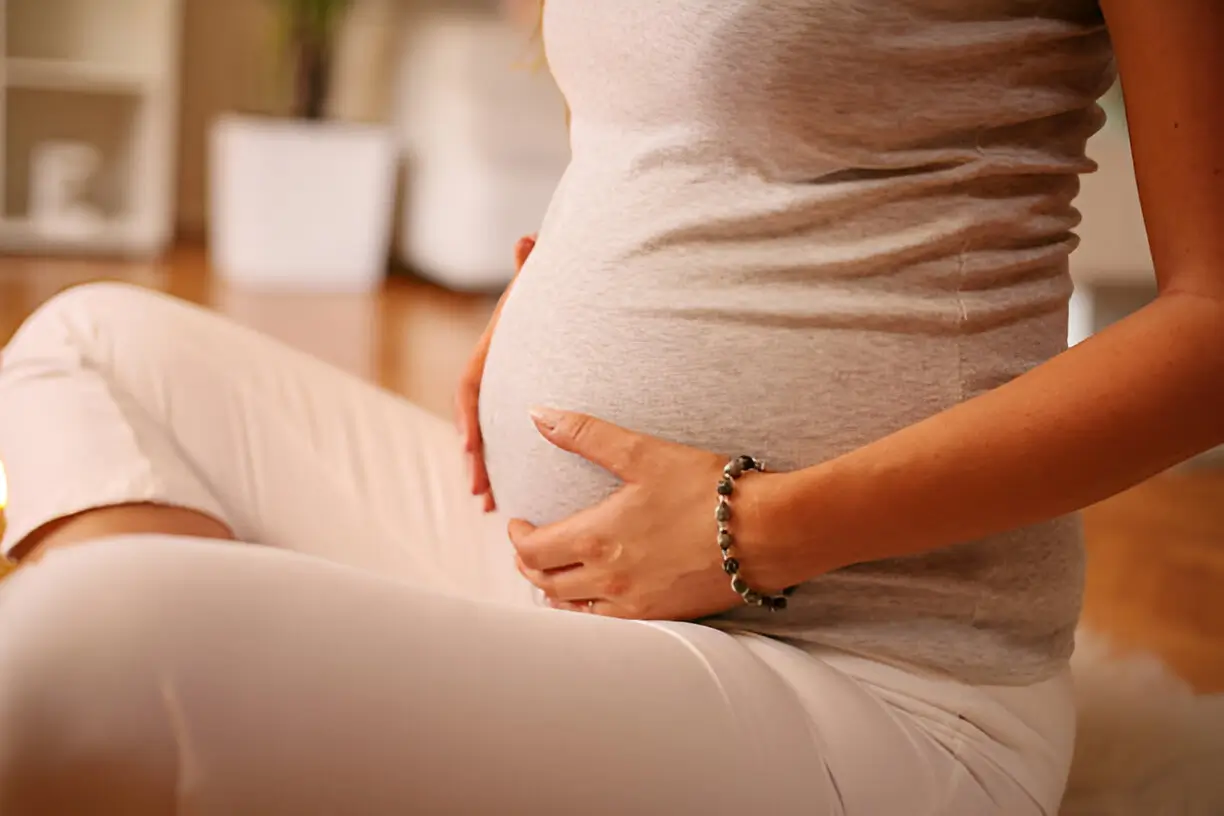
Best Herbs For Fertility
Finding the best Chinese herbs for fertility is hard. But certain Chinese herbs have been traditionally used to help balance the body and improve reproductive health. These herbs support blood flow, and fix imbalances that might affect conception. While no Chinese herbal medicine for fertility guarantees results on its own, including these into a well-rounded fertility plan can be highly beneficial for many.
Working with an acupuncturist or a specialist in herbal medicine can give you personalized advice on using these herbs effectively. However, understanding the potential benefits of each herb can help you make informed decisions. The following list includes some of the most recognized Chinese herbs for fertility. These herbs have been known to support various aspects of reproductive health, such as improving blood circulation to the uterus, regulating menstrual cycles, and fixing stress and anxiety, which can also impact fertility.
Including these Chinese fertility herbs into your routine might help create a more favorable environment for conception. Here is a list of Chinese herbs for fertility that will suit this issue the best. Always consult with a healthcare provider before starting any new herbal supplements, especially if you are already on medication or undergoing other treatments.
Huang Qi (Astragalus)
Huang Qi (Astragalus) Huang Qi, also known as Astragalus, is a staple in Traditional Chinese Medicine (TCM) with a long history of use for supporting overall health and immunity. This herb is particularly valued for its role in improving energy, stamina, and circulation. Astragalus is often used to help improve blood flow to the reproductive organs, which can create a more favorable environment for conception. Some studies suggest that Astragalus may also serve in a mix of Chinese herbs for male infertility by improving sperm motility and count, helping with some of the common factors contributing to male infertility. While more research is needed to confirm its effectiveness in humans, Astragalus has shown promising results in animal studies. Astragalus can be taken as a supplement or used in herbal teas, as a convenient addition to a fertility-supporting regimen. Consulting with a healthcare provider or TCM practitioner can ensure its safe and effective use of it in Chinese herbal tea for fertility or taken alone.
Yi Mu Cao (Chinese Motherwort)
Yi Mu Cao (Chinese Motherwort) Yi Mu Cao, or Chinese Motherwort, is a herb in TCM, often used to support women’s reproductive health. This herb is traditionally used to promote blood flow for a healthy menstrual cycle and proper uterine function. It is believed to help reduce blood stagnation and enhance circulation to the pelvic region. Which is especially good for women with irregular periods or hormonal imbalances because this can impact fertility. Yi Mu Cao can also strengthen the uterine lining. It can make a more supportive environment for implantation. Additionally, this herb may help with symptoms like menstrual cramps and stress, which can indirectly affect reproductive health. Its calming properties contribute to reducing tension and anxiety, further aiding overall well-being. When mixed with other holistic approaches to fertility, Yi Mu Cao can give valuable support for balancing the menstrual cycle and preparing for conception.
Dong Quai (Angelica sinensis)
Dong Quai (Angelica sinensis) Dong Quai, often referred to as “female ginseng,” is a traditional Chinese medicine for fertility that has been used for centuries to support women’s health, including fertility. It is well-regarded for its ability to regulate the menstrual cycle, which can be key for women facing challenges related to irregular periods. Dong Quai is rich in ferulic acid, an antioxidant that supports healthy blood circulation, including to the reproductive organs. Improved circulation can help create a more conducive environment for conception, as it supports the overall health of the uterine lining. In addition to its effects on circulation, Dong Quai is believed to help balance estrogen levels. Some studies suggest that Dong Quai can help reduce symptoms of conditions like endometriosis and uterine fibroids, which can sometimes be barriers to fertility. It is often used in combination with other fertility herbs However, because Dong Quai has a potent effect on blood flow, it should be used cautiously, and professional guidance is recommended to ensure proper dosage and timing.
Fu Ling (Poria)
Fu Ling (Poria) Fu Ling, known as Poria, is a fungus commonly used in TCM to support digestion and reduce stress. In terms of Chinese herbs for pregnancy, Poria is valued for its ability to strengthen the digestive system, which is important in TCM for maintaining balanced energy throughout the body. Proper digestion is believed to contribute to a healthier reproductive system. The herb ensures that nutrients are absorbed efficiently, supporting the body’s overall vitality. Poria is also used to reduce water retention and dampness in the body, which can affect the function of reproductive organs. By giving relaxation and reducing tension, Poria indirectly supports the conditions necessary for a healthy conception. It is often included in herbal formulas that aim to balance the body’s internal environment. Poria is usually well-tolerated, but it’s best to consult with a practitioner to determine the appropriate combination and dosage, especially when integrating it with other herbs.
Bai Shao (White Peony)
Bai Shao (White Peony) Bai Shao, or White Peony, is one of the herbs to boost fertility with a long-standing history in Chinese medicine, particularly for its role in balancing hormones and supporting women’s reproductive health. White Peony is often used to help regulate menstrual cycles. It is known for its ability to nourish the blood and soothe the liver, which in TCM is believed to be connected to a smoother menstrual cycle and reduced menstrual cramps. Additionally, Bai Shao can support the production of estrogen, helping to balance hormone levels that are critical for ovulation and conception. Its calming properties can also be helpful for reducing stress, which plays a significant role in fertility. When combined with other Chinese fertility herbs like licorice root, White Peony can be especially effective in addressing conditions like polycystic ovarian syndrome (PCOS) by helping to balance androgen levels.
Man Jing Zi (Vitex)
Man Jing Zi (Vitex) Man Jing Zi, commonly known as Vitex or Chaste Tree Berry, is a popular herbal remedy for supporting hormonal balance and fertility. It is well-regarded for its ability to influence the pituitary gland, which plays a crucial role in regulating hormones like progesterone and luteinizing hormone (LH). This makes Vitex particularly useful for women experiencing irregular menstrual cycles or low progesterone levels, both of which can impact fertility. Studies have suggested that Vitex may help improve the length of the luteal phase, the time between ovulation and the start of the menstrual period, which is important for implantation. It is also used to support hormone balance in women with conditions like PCOS, helping to reduce symptoms like irregular ovulation. While Vitex is generally considered safe, it is not a quick fix; it often requires consistent use over several months to show its full benefits. Consulting with a healthcare professional can help determine the right dosage and ensure that Vitex is used effectively within a fertility-supporting plan.
Sheng Ma (Black Cohosh)
Sheng Ma (Black Cohosh) Sheng Ma, known as Black Cohosh, is one of the herbs to help with fertility. It’s traditionally used to support women’s reproductive health, especially during menopause. However, it has also gained attention for its potential benefits in fertility. Black Cohosh is believed to have estrogen-like effects, which can help support ovulation and balance hormones. It has been studied for its role in supporting women with conditions like PCOS, where it may help improve ovulation when used alongside other treatments. Some research suggests that Black Cohosh may enhance the effects of fertility medications like Clomid, improving the chances of conception in certain cases. Additionally, it may help reduce menstrual discomfort and balance mood, reducing the stress that can impact fertility. While Black Cohosh is widely available, it is important to use it under the guidance of a healthcare provider, especially since its effects can be potent. Proper usage can ensure it provides support without interfering with other aspects of a fertility plan.
Why Do Women Over 40 Struggle With Infertility?
Infertility becomes a more common challenge for women as they age, particularly for women over 40. The primary reason for this is the decline in the number and quality of eggs. As women age, their ovarian reserve – the number of available eggs – decreases significantly. Not only are there fewer eggs, but the quality of the remaining eggs tends to decline, which can make it more difficult to conceive. This decrease in egg quality can lead to challenges with fertilization and a higher risk of miscarriage, even if conception occurs.
In addition to egg-related factors, other health issues can also affect fertility in older women. Conditions such as endometriosis, fibroids, and other uterine abnormalities are more likely to occur with age, potentially impacting the ability to conceive or carry a pregnancy to term. Hormonal changes that accompany aging, like fluctuations in estrogen and progesterone levels, can further complicate the process of ovulation and implantation.
Men over the age of 40 may also experience decreased fertility, which can compound the challenges faced by couples trying to conceive. Alongside lower sperm quality, the risk of genetic abnormalities in offspring increases with paternal age. There is also a solution with Chinese herbs for male fertility and sperm health.
Chinese Medicine for Natural Fertility at Pulse Acupuncture
Pulse Acupuncture offers natural fertility support through the principles of Traditional Chinese Medicine (TCM), giving herbs that help with fertility and giving a holistic approach to your issue. With locations in Clifton, NJ, and Williamsburg, Brooklyn, Pulse Acupuncture is led by Marina Doktorman, L.Ac., a licensed acupuncturist with extensive experience in using acupuncture for fertility. Marina Doktorman offers safe and effective acupuncture treatments, tailored to the unique needs of each patient.
Acupuncture can help with fertility, like improving blood flow to the reproductive organs, balancing hormones, and reducing stress – factors that are crucial for supporting a healthy menstrual cycle and ovulation. The treatments at Pulse Acupuncture aim to create a more balanced internal environment, potentially increasing the chances of conception naturally. This holistic approach is suitable if you’re looking for a complementary method. Whether you are trying to conceive naturally or in conjunction with assisted reproductive technologies like IVF.
By working with Marina Doktorman, patients can receive individualized care that prioritizes their well-being and fertility goals. With a focus on safety and personalized treatment plans, Pulse Acupuncture provides a supportive space if you’re seeking natural fertility solutions, incorporating options like fire cupping and wet cupping into the treatment plans as needed. Additionally, the clinic offers expertise in acupuncture services, which complements the use of Chinese herbs in Clifton, NJ and Chinese herbs in Brooklyn for a well-rounded approach to fertility care.
Read also:
- Ear Seeds: What to Know
- Chinese Herbs for Weight Loss
- What is Facial Rejuvenation Acupuncture and How Does it Work
Frequently Asked Questions about Chinese Herbs for Fertility
What are Chinese Herbs for Fertility?
Chinese herbs for fertility are a collection of plant-based remedies used in Traditional Chinese Medicine (TCM) to support reproductive health and enhance fertility. These herbs are carefully selected and formulated to balance the body’s energy (Qi), improve circulation, regulate hormones, and address underlying imbalances that may affect fertility.
How Do Chinese Herbs Work to Improve Fertility?
Chinese herbs work by balancing the body’s vital energy (Qi) and restoring harmony to the organs involved in reproduction, including the kidneys, liver, spleen, and uterus. They are often used to regulate menstrual cycles, improve egg quality, enhance sperm production, and support overall reproductive health. The herbs aim to restore the body to its natural state of balance, which is essential for conception.
Are Chinese Herbs Safe to Use for Fertility?
When prescribed and monitored by a trained TCM practitioner, Chinese herbs are generally considered safe. However, not all herbs are suitable for everyone, and some may interact with other medications or have side effects. It’s important to work with a licensed herbalist or acupuncturist who specializes in fertility to ensure the herbs are appropriate for your specific needs and health condition.
Can Chinese Herbs Help With Male Fertility?
Yes, Chinese herbs can also support male fertility by improving sperm quality, motility, and overall reproductive health. Herbs such as Ginseng, Goji berries, and Epimedium (Horny Goat Weed) are often used to boost sperm production, improve circulation, and enhance vitality. A TCM practitioner may suggest an individualized herbal treatment for men based on their specific needs.
Can Chinese Herbs Help With Conditions Like PCOS, Endometriosis, or Irregular Cycles?
Yes, Chinese herbs are often used to address fertility-related conditions such as PCOS (polycystic ovary syndrome), endometriosis, and irregular menstrual cycles. TCM can help regulate hormone levels, reduce inflammation, and improve blood circulation to the reproductive organs. Specific herbs and formulas are tailored to address the underlying causes of these conditions and support fertility.
-
Marina Doktorman, M.S., L.Ac., is an experienced acupuncturist who obtained her Masters of Acupuncture from the Tri-State College of Acupuncture in New York City in 2001. During her studies, she focused on Chinese Herbology, a branch of Traditional Chinese Medicine (TCM) that utilizes herbs to complement acupuncture treatments. Marina is licensed in both New York (NY) and New Jersey (NJ) and holds a Diplomate of Acupuncture from the National Certification Commission for Acupuncture and Oriental Medicine (NCCAOM), indicating her expertise in the field.


